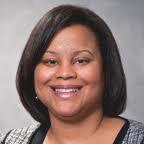 Dr. Danielle R. Holley-Walker, dean of Howard Law School, said that more must be done to ensure that equality is enacted on a daily basis.
Dr. Danielle R. Holley-Walker, dean of Howard Law School, said that more must be done to ensure that equality is enacted on a daily basis.Commemorating the 50th anniversary of the 1964 Civil Rights Act, activists and senior government officials gathered at Howard University to celebrate past achievements and look to the future of racial equality.
Half a century ago, activists and civil leaders realized the dream of ensuring full equality under the law for all citizens, regardless of race. In a packed auditorium at Howard University, the audience heard speeches and remarks on their achievements from Attorney General Eric H. Holder, Jr.; U.S. Department of Education Secretary Arne Duncan; Julian Bond, former chairman of the NAACP; and U.S. Department of Labor Secretary Thomas E. Perez; among others.
According to panelists and speakers, the legislation, monumental though it may be, has not provided the solution to contemporary problems of income and educational inequality that tend to fall most heavily upon minority populations. Dr. Wayne A. I. Frederick, interim president of Howard University, said, “The Civil Rights Act was a destination, an important one albeit, but not an end.”
Education inequality is the primary civil right issue of the contemporary generation, said Arne Duncan, secretary of the U.S. Department of Education. Though high school graduation rates and college-going rates are at all-time high nationwide, some minority groups, such as Latinos and African Americans, are falling behind.
Duncan said that it is essential for public schools to provide early childhood education and to offer equal educational opportunities. “We look at far too many schools where African American and Latino students go to high school, where they don’t have sufficient access to AP classes, they don’t have sufficient access to college counseling, physics and biology,” Duncan said. “How can they be prepared to be successful, if what are now basic classes aren’t there?”
The number of minorities in the public school system will only continue to grow, according to Duncan. “Our department predicts that, this fall, for the first time in our nation’s history, our nation’s public schools will be majority minority.” Finding the means to address disparities in educational attainment for African American and Latino students will have a large impact on the future of the nation.
Alluding to issues that immigrants, women, LGBT and minority populations face, U.S. Attorney General Eric Holder said that each individual has a responsibility to work toward equality. “Every American has a great deal more to do,” said Holder. “While we can be proud of the progress that’s been made, even in our own lifetimes, we cannot accept these advances as an indication that our work is complete, that our long journey has been successfully completed.”
Holder said that, rather than being “color-blind,” we should strive to be “color-brave.” “We must never hesitate to confront the fact that it’s an undeniable truth that in too many places across this country that I love, that I have served throughout my life, that the echoes of injustice continue to reverberate,” Holder said.
Looking ahead to the next 50 years, Dr. Danielle R. Holley-Walker, dean of Howard Law School, said that, while equality under the law is essential, more must be done to ensure that equality is enacted on a daily basis.
“There’s still work to be done in the sense that there’s tremendous income inequality that many Americans are suffering from in terms of unemployment rates. We still see dramatic differences based on race,” said Holley-Walker. “In terms of our education system, when we look at the achievement gap between students of color and Caucasian students, all those things we again need to work more carefully on.”
Despite the work that still needs to be done, the legislation has dramatically changed the American landscape. “It instills into everyday life that bedrock principle of equality that is so important to the American way of life,” said Holley-Walker.





















